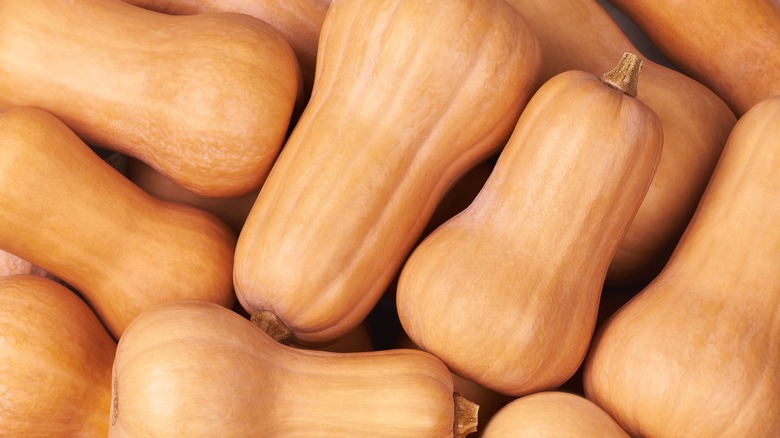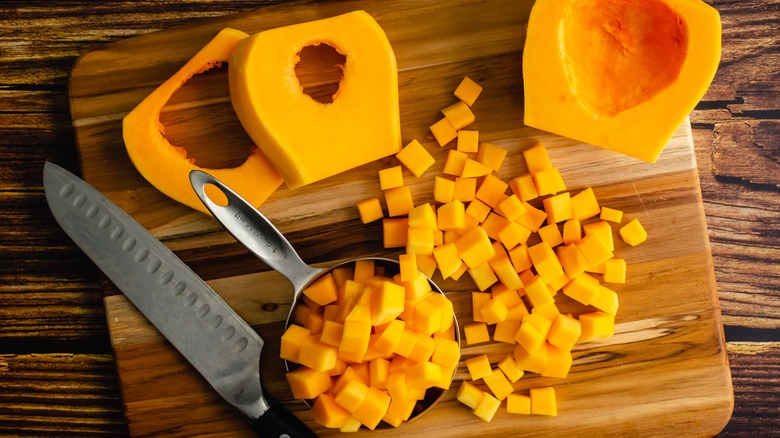To Keep Squash Fresh, Don't Store It With Apples
Squash is a delicious, versatile vegetable to have on hand. It is hearty, nutritious, and easily takes on both sweet and savory flavor profiles depending on the dish. It's also convenient to keep around the kitchen, as it can stay fresh for up to six months when stored correctly. This is why, while it is tempting to store seasonal produce together, you should never keep your squash in the same space as apples — doing so will cause the squash to go bad far more quickly.
The reason that apples cause squash to perish far faster is because of the gas that the fruit emits as it ripens: ethylene. Many fruits and some vegetables emit ethylene, including bananas, tomatoes, peppers, and avocados — so you'll want to keep these away from squash as well. While these emissions can be helpful in assisting their own ripening, they also speed up the process for the produce around them. This can cause fruits and vegetables that are ethylene-sensitive, such as cucumber, onions, peaches, and of course, squash, to turn prematurely.
How to store squash properly
In addition to keeping it separate from apples and other ethylene-creating produce, there are several more steps you can take to ensure your squash stays as fresh as it can for as long as possible. Though it may be your first instinct, avoid putting your squash in the refrigerator. Rather than preserving the gourd, the cold temperatures will actually cause it to spoil. Instead, keep it in a cool, dry space with as little sunlight as possible. Inside a pantry, cupboard, or basement are good options to consider.
If you lack the space for a whole squash in your kitchen, your next best bet is to simply cook it to your liking and freeze the result. Both the roasted and puréed versions freeze well and can be thawed for use in many dishes, such as a velvety butternut squash soup or a filling spaghetti squash lasagna.

